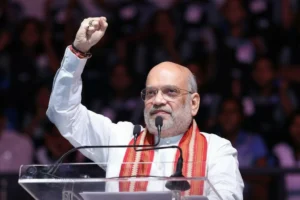
Online games
In light of growing concerns over the use of digital services for money laundering and tax evasion, the Goods and Services Tax (GST) Council is likely to propose a block on online games that do not adhere to Indian tax laws, according to people with knowledge of the discussions that are likely to be on the table at the next meeting on Wednesday.
On July 11, the GST Council, which consists of the finance ministers of each state and is presided over by the union finance minister, imposed a 28% tax on online games. According to officials, this was necessary because the activity was viewed as a luxury and not an absolute necessity, earning it the highest tax bracket.
Online Games more prone to tax evasion
There have been worries that by operating from abroad, internet gambling platforms would avoid paying GST. However, one official claimed that in these situations, the tax administration will deduct GST from the payment sources.
“Tax management is made relatively straightforward by the 28% GST on the face value of bets rather than gross gaming revenue (GGR). In the case of an offshore platform, tax can be subtracted from the payment sources, the speaker noted. GST on GGR value, or total bets less total wins, will make the system more difficult. “It is difficult to monitor, particularly in cases of overseas players, and prone to manipulations,” he continued.
Also Read: Kerela: 5-year-old Girl’s Body Found In Aluva Market, 20 Hours After Being kidnapped
“Suitable amendments” to be made in the law
According to the second official, the Council will discuss any required amendments to the law on Wednesday in order to carry out its judgements from July 11.
Sitharaman, who chairs the council, told the media on July 11 that “suitable amendments” to the law would be made to include horse racing and internet gambling in schedule III as taxable actionable claims.
The officials said, “It is also likely that the Council may approve tweaking of laws so that overseas online gaming entities cannot evade GST if payment is made from India. Tax authorities could also be empowered to block overseas entities for noncompliance.”
To read more such news, download Bharat Express news apps









































